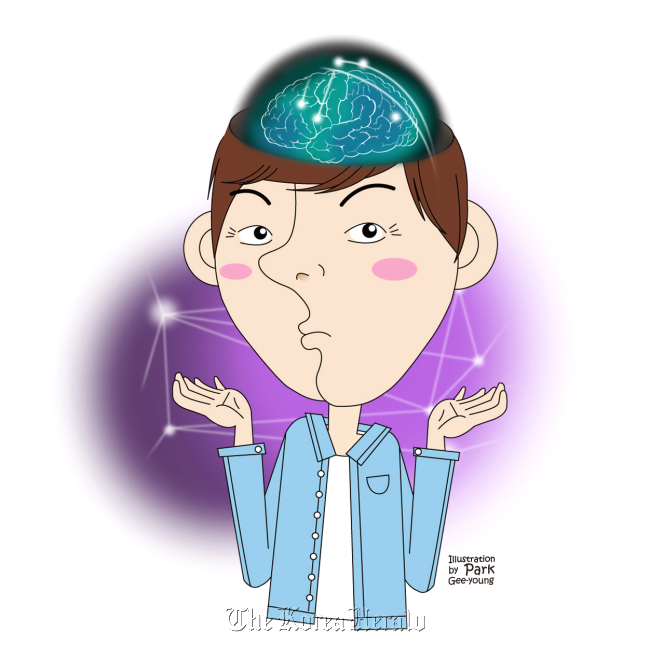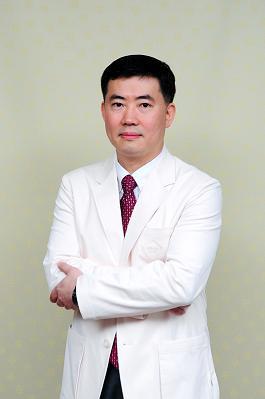Symptoms related to the brain can include loss of consciousness, headache, dizziness, tingling of the skin, language disturbance, double vision, gait abnormalities, memory loss, sensory loss, and abnormal movements such as tremor and rigidity. Headaches and dizziness can arise from brain disorders, but abnormalities may not present themselves upon examination even with the presence of symptoms. People may feel the need to undergo tests, in particular, a brain MRI to confirm the diagnosis when they experience such symptoms. However, a detailed history, along with a neurological examination is more important before undergoing any neuroimaging. The most economical and wisest way is to undergo such diagnostic steps and then, to conduct appropriate tests to check the problems. Tests that are done without such history taking and examination can be meaningless.

Loss of consciousness
Of the various symptoms described, we will first look into loss of consciousness. A person with risk factors for chronic vascular diseases, such as hypertension, diabetes mellitus or cardiovascular diseases, must be seen by a doctor as soon as possible. This is because there is a risk of developing a more serious condition, stroke. Until the exact causes are found, the patient should avoid driving and any dangerous situations. Pathologies of the brain can also lead to speech difficulties, double vision, gait abnormality, and unilateral sensorimotor deficits. These manifestations can occur suddenly in the case of bleeding or obstruction of the vessels in the brain, or gradually in the case of brain tumors. Of course, other symptoms such as headaches and dizziness can also occur. However, headaches and dizziness themselves are more likely to be due to other problems rather than stroke or brain tumors.
A stroke is an emergency situation, so if any neurological symptoms arise suddenly, it is best to visit an emergency department at a hospital. You should avoid shaking, sitting up, bleeding the fingers and toes, or giving “cheongsimhwan” (a type of traditional medicine) to a person who has lost consciousness. If the person is also experiencing seizures, refrain from putting something in the mouth to prevent the person from biting his or her tongue. Stay calm, place the patient in a safe position on their side, and make sure that any vomit or saliva does not enter or obstruct the trachea. Remove ties or belts, and observe the face, lip color, sweating, and the movement of the arms and legs of the patients and record it so that it can be delivered to the hospital with the patient to help with the diagnosis.
Headache
Of the various types of headaches, an extremely severe pain that feels like being hit on the head with a hammer, with neck stiffness, may indicate subarachnoid hemorrhage, caused by the rupture of a cerebral artery aneurysm. The condition can be cured by neurological surgery, involving clipping the aneurysm. This condition also requires emergency treatment.
However, for other types of general chronic headaches, the cause must be identified first ― whether it is vascular headache or muscle-related pain, in order to provide appropriate treatment. Most chronic headaches are worsened by anxiety, fatigue, stress, and overwork, so such cases must be addressed appropriately. Recently, triptan family medicines have been developed to effectively treat vascular headaches such as migraine.
If there are flu-like symptoms, associated with severe headache and neck stiffness, meningitis may be the cause. If this is the case, appropriate active treatment is needed according to the causes of meningitis.
Dizziness
Dizziness is also a common symptom, and the cause of dizziness must be identified ― whether it is due to problems in the peripheral nervous system (semicircular canal, otolithic organs, or vestibular ganglion), or due to central nervous system or vascular problems. The causes of central nervous system problems leading to dizziness include problems in the vertebrobasilar arterial system that supplies blood to the cerebellum and the brainstem. There is a need to exclude rare causes such as brain tumor or degenerative diseases including cerebellar atrophy. Benign paroxysmal position vertigo, a peripheral cause of dizziness by otolithiasis, can be treated by canal reposition maneuvers which repositions the otolith. Vestibular neuritis can be overcome by the treatment of the acute phase, followed by vestibular rehabilitation. Therefore, appropriate diagnosis, followed by the right treatment or exercises are needed to overcome the symptoms.
Most recent treatments
There has been significant advancement in the field of neurology treatment. Thrombolytic therapy in ischemic strokes can produce good outcomes if used within 3 hours of occurrence. Other intervention treatments have been developed, which have allowed treatment of various cerebrovascular diseases without an open craniotomy. New antiplatelets and anticoagulants have been developed which have improved the side effects of stroke medications. New methods of finding the epileptogenic focus in epilepsy has been developed, leading to the development of epilepsy surgery to remove the foci. This has opened a new chapter in the treatment of intractable epilepsy. Since the 1990s and onwards, approximately 10 new antiepileptics have been developed. Now, about 20 emerging medications are being researched. With the development of brain stimulation therapy, it is possible to treat the neurological diseases by inserting intracranial electrodes to electrically stimulate the target area. This has led to the development of neurostimulation therapy for Parkinson’s disease, by inserting depth electrodes into the deep brain area to improve the symptoms of advanced Parkinson’s disease patients. By electrically stimulating the vagus nerve, seizures can be controlled in epileptic patients. A responsive neurostimulator, which records the signals of epileptic areas to deliver stimulation at the same time as the seizures occur, is also being developed.
Four pharmacological agents from the family of cholinesterase inhibitors have been developed to improve the symptoms of dementia. New agents are being developed with various mechanisms of action to treat abnormal movement disorders. With other developments in sleep medicine, various hypnotics have also been developed. Serotonin-related medications have also been developed for depression related to brain lesions.
In terms of surgical treatment, microscopic surgical methods and navigation during surgery have been developed to produce a better neurosurgical outcome. Other modalities, such as the gamma-knife, which uses gamma rays and the high-intensity focused ultrasound, are being used in neurosurgery.
With neurophysiological monitoring system during surgery, it is possible to minimize any neurological complications from neurosurgery. High-resolution brain imaging has allowed diagnoses that are more accurate by being able to visualize structural abnormalities in the brain, to improve treatment. More recently, advancements in immunology have allowed the development of treatments for immunological encephalitis, multiple sclerosis, and neuromyelitis optica, which is common in the Asian population.
Generally, the neurons cannot be regenerated once they are damaged. However, they have the plasticity to help the function of the surrounding cells, so function can recover to some extent. Once any symptoms arise, it is important to see a neurologist to improve such plasticity. Most importantly, it is best to prevent any damage from occurring. However, even if a disease is already present, continued treatment and diagnosis by a specialist will help with recovery. If you experience any of the symptoms described previously, you should see a doctor to find out the cause of such symptoms. If you do not have a particular condition, you and your doctor can work together to manage such symptoms.
Many people are using health supplements and traditional remedies, and other methods to maintain health. Rather than relying on such methods, it is best to simply avoid overworking, staying up all night, or drinking alcohol, while regularly eating well, sleeping and exercising to maintain your health. This is a more economical and effective method to maintain basic health as well as brain health. If you experience any symptoms, it is best that you see a doctor.

By Seo Dae-won
The author is a doctor at Department of Neurology at Samsung Medical Center and a professor at Sungkyunkwan University School of Medicine. ― Ed.
-
Articles by Korea Herald






![[From the Scene] Monks, Buddhists hail return of remains of Buddhas](http://res.heraldm.com/phpwas/restmb_idxmake.php?idx=644&simg=/content/image/2024/04/19/20240419050617_0.jpg&u=20240419175937)








![[From the Scene] Monks, Buddhists hail return of remains of Buddhas](http://res.heraldm.com/phpwas/restmb_idxmake.php?idx=652&simg=/content/image/2024/04/19/20240419050617_0.jpg&u=20240419175937)

![[KH Explains] Hyundai's full hybrid edge to pay off amid slow transition to pure EVs](http://res.heraldm.com/phpwas/restmb_idxmake.php?idx=652&simg=/content/image/2024/04/18/20240418050645_0.jpg&u=20240419100350)

![[Today’s K-pop] Illit drops debut single remix](http://res.heraldm.com/phpwas/restmb_idxmake.php?idx=642&simg=/content/image/2024/04/19/20240419050612_0.jpg&u=)